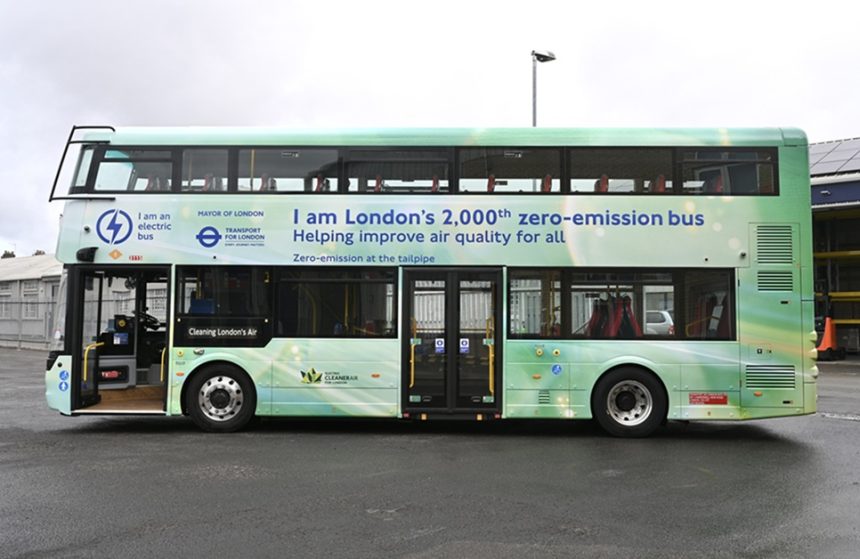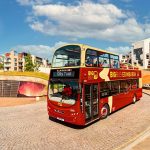The bus fleet used on Transport for London (TfL) services in the capital now includes more than 2,000 zero-emission examples that fully operate 107 routes and service a further 30 on a partial basis.
A ceremonial 2,000th example recently delivered is a Wrightbus StreetDeck Electroliner battery-electric in the Transport UK London Bus fleet. That double-decker is part of a five-year exclusive vehicle supply partnership between the two parties, an arrangement that will see 75 additional deliveries this year.
TfL notes how in 2016, only 30 zero-emission buses were within its contracted fleet. Of the over-2,000 units now running, 20 are hydrogen fuelled. The remainder use battery power. The most recent fleet audit by TfL shows that 8,776 buses are used across its network.
Transport UK London Bus is using the 2,000th zero-emission bus as one of 12 on route 337 between Clapham Junction and Richmond. It has been given a green-based wrap to mark the milestone.
Managing Director David Cutts calls reaching that number a “momentous” achievement for the capital. “Working with TfL and our supply chain, Transport UK is showcasing world class public transport, in the process improving air quality and helping to secure UK-based employment,” he says.
“As a result of this partnership, all six of our garages run zero-emission services, and with sustained investment over the next few years, we will collectively achieve decarbonisation of the entire red bus network.”
TfL continues to “investigate solutions to deliver a 100% zero-emission [bus] network by 2030,” the Greater London Authority Budget for 2025/26 notes. That has long been an aspiration of Mayor Sadiq Khan.
Also opened are talks with government on “the opportunity for a different model to enable higher volumes of buses to be ordered at a discounted price that would give certainty to the supply chain and surety of delivery across the country,” TfL noted earlier in 2025.
“This would also enable TfL to accelerate its zero-emission fleet rollout and potentially cascade low-emission buses to other parts of the country, providing a wider environmental benefit,” the body continues.
Director of Buses Lorna Murphy adds that the organisation is “on a mission to transition to a fully zero-emission bus fleet.” She observes that such a move will support the UK economy while also being critical to Mr Khan’s ambition for London to reach net-zero carbon by 2030.



























